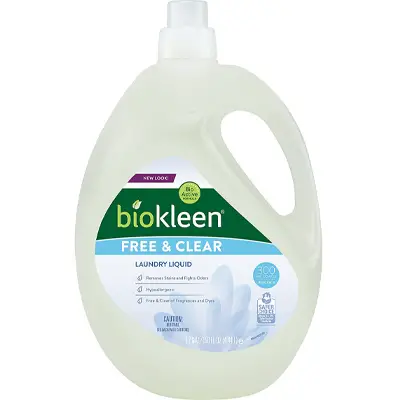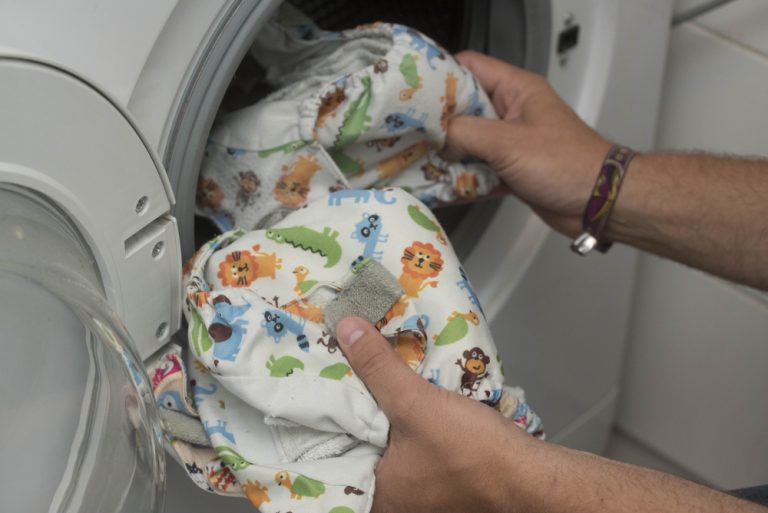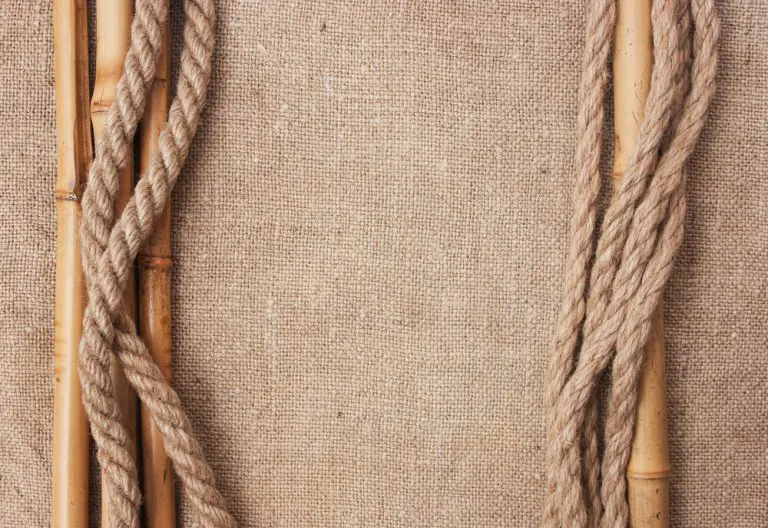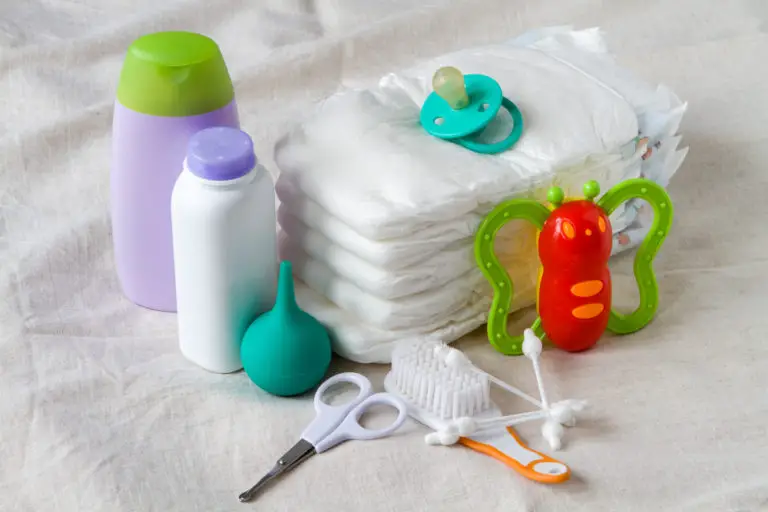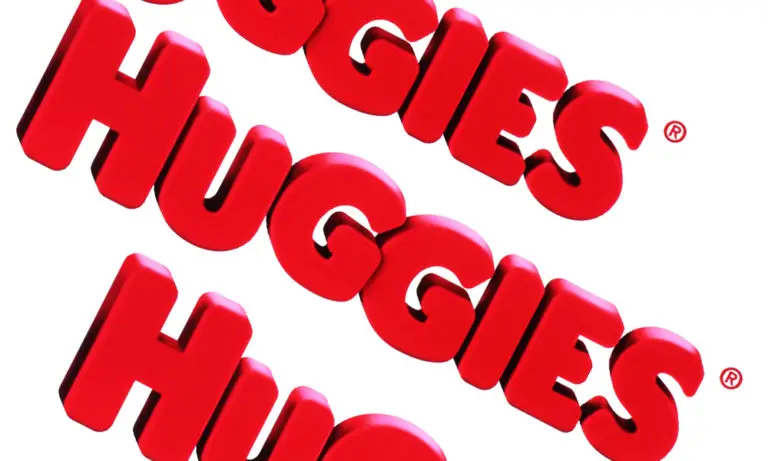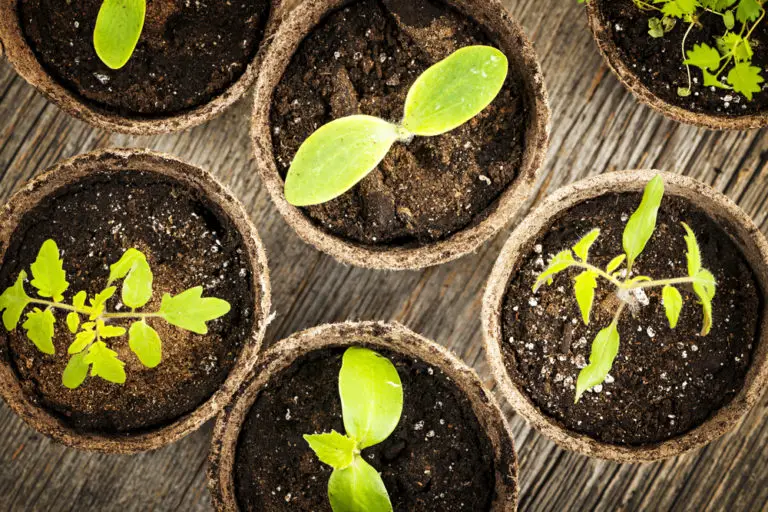12 Best Detergents for Cloth Diapers in 2025 (Cloth Safe)
The wrong type of detergent can damage cloth diapers and create build-up, which causes leaks. If possible, pick a detergent that’s specifically designed for cloth diapers.
Best detergent for cloth diapers is free of fragrance, dye, parabens, optical brighteners, phosphates, and SLS/SLES. PS! Avoid fabric softeners as they leave oil deposits and residue that make diapers less absorbent.
We Recommend
Best Detergent for Cloth Diapers
1. Esembly Cloth Diaper Detergent
This laundry detergent for cloth diapers contains sodium carbonate, sodium percarbonate, and mineral-based softeners. These ingredients are gentle and safe for cloth diapers and your baby.
The formula is pH balanced and clean rinsing, meaning the suds wash away effectively. This prevents any build-up on your diapers.
The surfactants not only clean your cloth diapers well but are also biodegradable. This detergent contains no fragrance, dye, parabens, optical brighteners, phosphates, SLS, and SLES, making it suitable for cloth diapers and gentle on sensitive skin.
Used with Esembly silicone agitator balls, you can easily remove tough stains. A con is that the agitator balls can have a strange odor.
What We Liked
- This detergent effectively neutralizes odors.
- The mineral-based softener keeps your diapers soft and fluffy.
- This detergent lasts a long time, making it economical.
- Esembly designed this detergent specifically for cloth diapers.
- You can move the agitator balls from the washer to the dryer with the diapers, and they are easy to pack when traveling.
Type: Free and Clear
Form: Powder
Water: Hard/Soft
Scent: Unscented
HE: Yes
2. RLR Laundry Treatment
This diaper detergent contains no toxic chemicals, making it safe for cloth diapers. The biodegradable ingredients are vegan and biodegradable, making them gentle on the earth and sensitive skin. The concentrated formula is designed to help remove the toughest stains.
RLR Laundry treatment has impressive stripping abilities and helps remove mineral and soap build-up from your cloth diapers.
This keeps them white but also helps to keep them absorbent as a build-up can cause repelling.
A con is that a user reported a chemical smell when opening the package, and the full ingredients are not listed.
What We Liked
- You can use this laundry treatment for pre-soak, prewash, and regular wash.
- The stripping properties work well on deeply embedded, tough stains.
- This treatment helps restore your fabrics and colors, keeping your diapers looking fresh.
- The gentle ingredients won’t coat the diaper material and cause repelling.
- Very good at removing odors from fabric.
Type: Mineral-Based
Form: Powder
Water: Hard
Scent: Unscented
HE: Yes
3. Rockin’ Green Cloth Diaper Detergent
Rockin’ Green is a cloth diaper safe laundry detergent popular in cloth diapering circles. It has plant-based surfactants that help clean away tough stains while not using harsh chemicals.
It is enzyme-free and contains no dyes, optical brighteners, or artificial fragrances. This makes it safe for fabrics and your baby’s skin. These ingredients are biodegradable and eco-friendly, which allows you to launder with peace of mind.
Wash your diapers in a cold rinse/wash before adding detergent and washing on a hot cycle. Be sure to double rinse to ensure all the detergent is removed.
Soft water may need less detergent. A con is that some users have found it harsher on fabrics over time than other natural detergents.
What We Liked
- This detergent is hypoallergenic and suitable for sensitive skin.
- Overall, this detergent offers effective but gentle cleaning.
- Rockin’ Green has 100% naturally scented detergent options.
- This detergent is inexpensive, so you can use it for household laundering.
- The package comes with detailed laundering instructions, perfect for cloth diaper newbies.
Type: Mineral-Based
Form: Powder
Water: Soft to moderate
Scent: Unscented
HE: Yes
4. Dyper Cloth Diaper Laundry Pods
This is one of the best natural detergent for cloth diapers. Most of the ingredients have a plant or mineral origin, making them safe and gentle on cloth diaper materials.
These pods have no fragrance, dye, enzymes, phosphates, phthalates, parabens, or optical brighteners, making them perfect for babies with sensitive skin.
The laundry pods have a polyvinyl alcohol film (PVOH) with a bittering agent. This is water-soluble, safe, and eco-friendly.
A con of this detergent is that laundry pods can be more expensive, mainly when performing a prewash and main wash for cloth diapers.
The pods are also pre-measured amounts, making it tricky to customize when doing smaller or bigger loads.
What We Liked
- The packaging of the laundry pods is recyclable.
- The pods are quick, easy, and convenient to use, which is great for busy parents.
- This detergent is gentle on natural fiber cloth diapers.
- The PVOH film encapsulates a pre-measured amount, making it easy to use and easy to keep track of usage.
- The pods are odorless, biodegradable, and non-toxic.
Type: Free and Clear
Form: Liquid (Pod)
Water: Hard/Soft
Scent: Unscented
HE: Yes
5. Charlie’s Cloth Diaper Laundry Soap
This laundry soap for cloth diapers contains hypoallergenic, plant-based surfactants. This means your cloth diapers will be cleaned but not damaged by harsh chemicals.
The biodegradable ingredients effectively remove stains and odors, leaving your diapers clean with no ammonia odor. The non-toxic formulation is septic-safe and non-toxic so that you can use it regularly with no concerns.
This detergent contains no optical brighteners, SLS, SLES, perfumes, or fillers, making it gentle on cloth diapers and skin. The detergent has good solubility and won’t leave residue on your diapers. A con is that some users reported red bums, rashes, and irritation after using the detergent.
What We Liked
- This detergent is E.P.A. Safer Choice seal approved.
- This laundry soap is affordable, making it a good option for families on a budget.
- The packaging includes detailed washing instructions.
- The detergent packaging is recyclable.
- This laundry soap is suitable for all laundry, not just cloth diapers.
Type: Mineral-Based
Form: Powder
Water: Hard/Soft
Scent: Unscented
HE: Yes
6. Tide Powder Diaper Laundry Detergent
Tide is one of the top detergents used for cleaning cloth diapers and comes highly recommended. The biodegradable anionic surfactants and enzymes provide a strong stain removal power while still being gentle on fabrics.
It has a built-in softener for hard water and is formulated without phosphates. You can use this detergent for all household laundry which makes it convenient, and many eco-parents will recommend Tide for effective diaper cleaning.
Use a warm pre-rinse, a hot wash, and an extra rinse to ensure no detergent remains in the fabric. A con is that Tide is not suitable for sensitive skin, and some users have reported residue marks.
What We Liked
- The packaging is recyclable.
- The detergent comes with a convenient measuring scoop.
- Tide is a cost-effective but quality detergent.
- It is suitable for hard and cold washes.
- Tide simplifies the diapering process as it is simple to use and can be used for all household laundry.
Type: Synthetic
Form: Powder
Water: Hard
Scent: Scented
HE: Yes
7. Tide Free and Gentle Sensitive Cloth Diaper Detergent
Tide Free and Gentle is a top detergent for cloth diapers. It has high concentrations of surfactants that provide a powerful clean for cloth diapers.
This detergent is hypoallergenic and contains no dyes, optical brighteners, fragrances, or phosphates. This makes it suitable for sensitive skin, and the National Psoriasis Foundation even recognizes it.
You will need half a scoop in the prewash and a full scoop in the main wash to see the best results. If you have hard water, you will need to add a water softener to achieve a better clean.
A con is that this detergent is expensive, and many users have complained about poor packaging and packaging leaks.
What We Liked
- A convenient measuring scoop is included with the detergent to ensure accurate dosage.
- This detergent has been dermatologist tested for skin safety.
- It cleans diapers well and also works on other daily stains.
- The packaging has clear washing instructions.
- This detergent had the highest value rating in parent tests.
Type: Free and Clear
Form: Liquid
Water: Soft
Scent: Unscented
HE: Yes
8. Purex Free and Clear Cloth Laundry Detergent
Purex is another cloth diaper detergent that cleans cloth diapers effectively but gently.
It contains no perfumes or dyes, making it suitable for sensitive skin. It has also been dermatologist tested and is hypoallergenic.
It is safe for cloth diapers as it contains no enzymes, coconut, nickel, lanolin, parabens, oil, or acids. This means there are no harmful chemicals to irritate the skin or coat the fabric and cause repelling.
A con is that it can be sudsy in soft water and require extra rinsing. You might also need to pre-treat tough stains before the main wash.
What We Liked
- This is an inexpensive detergent that offers good value for money.
- SkinSAFE found it Top Allergen Free.
- It offers good odor neutralization and general dirt removal.
- It leaves diapers clean, fresh, and bright.
- You can use this detergent for daily family laundry, not just diapers.
Type: Free and Clear
Form: Liquid
Water: Soft
Scent: Unscented
HE: Yes
9. ECOS Hypoallergenic Cloth Diaper Detergent
ECOS makes a highly rated cloth diaper-friendly detergent. It is formulated with additional surfactants for extra cleaning power.
The surfactants are plant-based, which makes this a cloth-safe detergent. The 100% vegan formula is hypoallergenic, which makes this detergent suitable for sensitive skin.
The baby stain and odor remove effectively clean cloth diapers without the use of harmful substances like parabens, phosphates, and brighteners. This detergent leaves diapers feeling soft and clean.
A con is that you need a lot more detergent to clean diapers if you have hard water effectively. It also contains coconut derivatives which can affect the absorbency of the diaper.
What We Liked
- It is an All-in-One detergent that will naturally clean, brighten, and soften your diapers.
- This detergent contains no harsh chemicals.
- It has been dermatologist tested and has a U.S EPA Safer Choice certification.
- ECOS is a climate-positive company.
- The detergent is pH balanced and has biodegradable ingredients.
Type: Plant-Based
Form: Liquid
Water: Soft
Scent: Scented
HE: Yes
10. Seventh Generation Ultra Power Plus Laundry Detergent
The free and clear formula makes this a cloth diaper safe detergent. This plant-based detergent is non-toxic and contains no synthetic perfumes or optical brighteners.
This makes it gentle on cloth diapers, sensitive skin, and the environment.
When washing, use half the recommended amount in a prewash if the diapers are heavily soiled and 1.5 times the recommended dosage in the main wash. Wash your cloth diapers with hot water.
For some users, using more than the recommended amount and a hot wash is a con. You will also need to add a water softener if you have hard water.
What We Liked
- It is a USDA-certified 97% Biobased product.
- This detergent is hypoallergenic and is safe for babies with skin conditions.
- The detergent is scented with essential oils, which are gentle on the skin.
- The ingredients are biodegradable.
- This detergent has a triple enzyme formulation for tough stain removal.
Type: Free and Clear (Plan-Based)
Form: Liquid
Water: Soft
Scent: Scented
HE: Yes
11. Purex Liquid Laundry Detergent
Purex has a range of cloth diapering detergents. They have a phosphate-free dirt lift action, making them safe for cloth diapers while deep cleaning them.
For tough stains, a five-minute pre-treatment is recommended. The super-concentrated detergent means effective cleaning and contains no enzymes.
The concentrated formula also means you will use less detergent, making Purex an affordable option. Although this detergent is synthetic, reviewers with sensitive skin reported no skin irritation.
A con is that some users found the scent overpowering, and you will need to do extra rinse cycles to remove the suds in soft water.
What We Liked
- You can use Purex for all your family’s laundry and not just cloth diapers.
- GroVia recommends Purex for washing their cloth diapers.
- One bottle of Purex lasts a long time which is cost-effective and convenient.
- The cap doubles as a handy measuring cup.
- This detergent is gentle on colors and whites.
Type: Synthetic
Form: Liquid
Water: Soft
Scent: Scented
HE: Yes
12. Biokleen Free and Clear Natural Laundry Detergent
The Biokleen detergent for cloth diapers uses biodegradable plants, minerals, microbes, and enzymes to break down tough stains on your cloth diapers.
This detergent is safe for your cloth diapers with no phosphates, chlorine, ammonia, petroleum solvents, optical brighteners, or fragrances.
It uses oxygen bleach to remove tough stains, so you benefit from a bleach-like clean without the harmful effects of chlorine.
The surfactants and conditioners come from coconut, corn, grapefruit seed, and pulp extract, which means it is safe for sensitive skin.
A con is that the washing instructions can seem confusing, and the ingredients are not as effective when used in hard water.
What We Liked
- This detergent is not tested on animals.
- Biokleen is concentrated, which makes it cost-effective and long-lasting.
- The detergent rinses clean and won’t leave residue on your diapers.
- It is effective at removing deep stains with a pre-treatment.
- It removes and neutralizes odors which is ideal for soiled cloth diapers.
Type: Free and Clear (Mineral-Based)
Form: Powder
Water: Soft
Scent: Unscented
HE: Yes
What Makes a Detergent Safe for Cloth Diapers?
Safe laundry detergents for cloth diapers and your baby’s skin contain no harsh chemicals. This includes toxic fragrances, dyes, bleaches, and fabric softeners.
Plant or mineral-based surfactants are suitable for your cloth diapers as they help break down the dirt and stains so they can be removed from the fabric.
Fabric softeners are not good for cloth diapers as they coat the fabric fibers and can affect absorbency. It can also cause stay-dry fabrics to repel liquid.
Soap-based detergents can leave a residue on fabric, and the natural ingredients can react with the minerals in the water resulting in an ineffective clean.
Homemade/DIY detergents can also be harmful to cloth diapers as the ingredients and ratios can affect the absorbency of the materials.
Cloth Diaper Detergent vs. Cloth Diaper Soap
Cloth diaper soap is derived from natural plant oils and animal fats. If not rinsed properly, these can leave a residue and make the fabric appear dull.
Soap requires agitation to be effective and does not always clean well in hard water. You will need to add a water softener and use agitator balls.
Like detergents, the best laundry soap for cloth diapers contains plant-based surfactants and biodegradable ingredients that are gentle on fabrics.
There are free and clear detergents that don’t have chemicals, and like soap, you might need more detergent if your water is hard.
Synthetic detergents offer a deep clean and don’t leave a residue. Using soap or detergent is a personal preference based on your budget, beliefs, and wash routine.
Soft Water vs. Hard Water
The mineral content determines the hardness of the water. The detergent attaches to the minerals in hard water instead of cleaning the diapers.
The best detergent for cloth diapers in hard water is often commercial ones as they have water softener additives and surfactants.
You can use a water test strip or look for white deposits on the taps to check for hard water. Untreated hard water will require you to use more detergent, or you could add a mechanical water softening system.
Soft water is better for cleaning, and you can use most detergents. Eco-friendly detergents and soaps don’t have softening agents, so they are better for soft water. Soft water can create more suds, so you will need extra rinse cycles.
Front Loading vs. Top Loading Washer
The most significant difference is the presence of an agitator and personal preference. Top loaders have a mechanical agitator and use lots of water.
You can adjust the water setting, and they are faster. They also make soaking easier and, combined with the agitator, clean cloth diapers better. So long-term, this can be wearing on the diapers.
Front-loaders and HE machines have an impeller and use less water. However, they are still effective, but you might need to add agitator balls to help with very soiled diapers.
They also need a full load as the diapers help agitate each other clean. Start with a prewash, and then use the most aggressive wash setting on your front loader.
How to Choose Detergents for Cloth Diapers?
The best laundry detergent for cloth diapers should have high concentrations of surfactants, and enzymes, be free of harsh chemicals and be compatible with your water and machine type and budget.
Surfactants
The best cloth diaper detergent options contain surfactants. These break up stains and suspend the dirt particles in the water so they can be washed away. Surfactants are necessary for hard water, so the detergent doesn’t leave a residue. They can be plant-based, and if you find a mineral build-up on your diapers, you are not using enough water softener or detergent.
Enzymes
Enzymes help break down stains and enhance cleaning. They improve the performance of a detergent, making them helpful but not essential. Enzymes like protease are designed to work on protein-based stains such as human waste. Synthetic enzymes are controversial as they may irritate sensitive skin. Enzymes must be adequately rinsed out after each wash.
Form (Powder or Liquid)
The best cloth detergent form comes down to personal preference, washing machine, and water type. Powder detergents are cheaper and offer eco-packaging. They often have a water softener base, working well in hard water. Liquid detergents are more water-efficient, so they suit a front loader or HE machine. They dissolve quickly and won’t leave a residue.
Sensitive Skin (Free and Clear)
Free and clear detergents do not contain harmful chemicals, additives, or irritants. This makes them safe for sensitive skin or babies with skin conditions like psoriasis or eczema. These detergents are plant and mineral-based and come unscented. They work better in soft water, so use a water softener in hard water and use more than the recommended dosage.
Other Ingredients
Other ingredients to look for in an effective and safe diaper detergent are builders like borax, Calgon, or oxyclean. These will help soften hard water, which most homes have. Softer water means the surfactants can bind to the dirt better, which means cleaner diapers. A safe bleach option like oxygen bleach can help remove deeply ingrained stains.
Ingredients to Avoid on Cloth Diapers
Some ingredients are not advisable for cloth diapers or your baby’s skin. Pure soaps, fragrances, dyes, fabric softeners, and bleach are not safe for cloth diapers.
Optical Brighteners
Optical brighteners absorb ultraviolet light and emit blue light, making clothes appear brighter and whiter. They don’t actually clean your diapers, just make them appear brighter. They can irritate sensitive skin and are not biodegradable. That means they pollute waterways. Chemicals can also build up on diapers and affect absorbency.
Fabric Softeners
Fabric softeners can coat the fibers of your diaper, making it less absorbent. They can also cause moisture-wicking microfleece to repel moisture. These chemicals can irritate the skin, and it has been suggested that fabric softeners can damage waterproof laminate. In addition, there are “green” softeners like Seventh Generation that can be used occasionally.
Fragrance
Fragrances are chemicals that can irritate sensitive skin, causing rashes. These chemicals can also build up on diapers over time which will affect absorbency and can even cause repelling. This build-up can also trap bacteria and odors in the fabric. Fragrances can contain hidden toxins and hormone disruptors like phthalates.
Soap-Based Detergents
Soaps are made from plant or animal extracts and can react with the minerals in the water. This causes them to leave a fil on fabrics. This can make diapers appear dull. This film can build up over time which will affect absorbency. A coating on the material will also prevent deep cleaning, resulting in stained and smelly diapers.
Coconut-oil-based Surfactants
Coconut oil-based surfactants like sodium cocoate can coat the fibers of your cloth diapers and build up over time. This makes cleaning more difficult, can cause repelling, and might result in the diaper retaining odors. Many natural diaper creams contain coconut oil, so although it won’t damage your diaper, it will affect its effectiveness.
Detergent Pods
Detergent pods won’t damage your cloth diapers, but they are expensive, and many people use cloth diapers as a budget-friendly option. Detergent pods are also pre-measured, so you can’t adjust your detergent amount to suit your laundry needs. Washing cloth diapers require a prewash which means you will use 2-3 pods per wash session.
Bleach (only for stripping)
Bleach is a harsh chemical that can irritate sensitive skin and cause rash. It can damage fabrics and delaminate PUL when used incorrectly or too frequently. Bleach is unnecessary for washing and should only be used occasionally for stripping diapers. This removes any buildup and helps your diapers stay absorbent.

Caitlin van Wyk
Caitlin van Wyk is a Parenting Writer and mother of two. With a background in psychology and teaching, she is passionate about offering support and educational content for parents as they navigate the highs and lows of raising kids. She has a Bachelor of Arts degree in English and Psychology from the University of South Africa. Caitlin also has a Level 5 TEFL Certificate and enjoys helping people get better at English. This experience lets her connect with people from different cultures, which adds depth to her writing. She managed Glengarry Holiday Farm for 10 years, emphasizing the importance of good communication and strong relationships in business and content creation.












